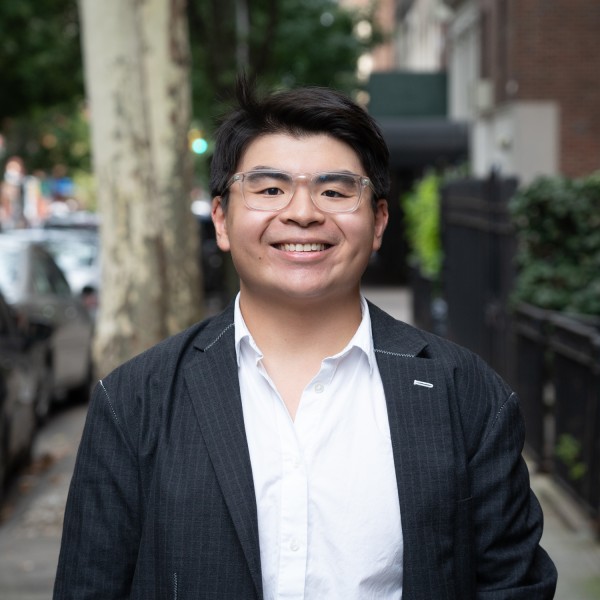As one of the most exciting voices in independent cinema to date, Isabel Sandoval has recently begun her tenure at the artist-in-residence program at the NYU Asian/Pacific/American Institute. As part of the institute’s focus on the theme “Learning as We Go” — an exploration of education in the face of “attacks on critical race theory” — the residency program gives artists a platform to “create new work, artistic retrospectives, forums or conferences.”
A multitalented artist working both in front of and behind the camera, Sandoval’s body of work presents a singular voice in the modern cinescape. Films like “Señorita” and “Lingua Franca” have garnered international recognition for the auteur’s refreshing visual style and approach to tackling LGBTQ+ issues and diaspora politics. WSN sat down with Sandoval to discuss her thoughts on film as an artform, her trajectory in modern cinema and her advice for the next generation of filmmakers.
This interview has been edited for length and clarity.
WSN: You’ve often described your films as “sensual cinema.” What is it about the medium that you find so intimate?
Sandoval: Through image and sound, cinema has the potential to articulate, within a particular frame, a character’s inner life — their most private, even illicit, thoughts, their emotional and imaginative life and the most primordial of impulses: desire. To want something or someone, it’s something that everyone feels or experiences — a kind of consuming hunger. Sometimes, that hunger is satiated; oftentimes, it’s not. Perhaps the object of one’s desire makes it taboo — for instance, queer love in repressive societies. It’s the visual transfiguration of that desire, liberated from the unconscious or at least unexpressed, while orchestrating various cinematic elements like cinematography and art direction, in ingenious, fervent and surprising ways that makes cinema sensual.
WSN: As a diasporic filmmaker, how important is art in the current discourse on identity and politics?
Sandoval: I think art, in the multitude of ways it can interpret and reimagine reality — and in this case, the diasporic experience — can give perspective and shift it, for both migrants who directly experience that reality and everyone else, who’s looking in from outside. While ethnic migrant communities have historically been “othered” in America, I think the boldest, most emotionally affecting art that makes migrant characters their emotional and moral center invites a viewer to put themselves in the migrant’s shoes.
It’s an invitation to empathy, to find commonality and not just difference in our shared humanity. The migrant ceases being a statistic, an abstraction, but a flesh-and-blood person who yearns, hopes, desires like all of us do. I’m not saying that the ultimate goal of diaspora is assimilation into the new culture, but an assertion of its own identity as one more thread — no less vital or important — as all other ones in the existing cultural tapestry.
WSN: What can you reveal about your upcoming projects “Tropical Gothic” and “Underworld”? How do they fit into or deviate from your current body of work?
Sandoval: They’re both in development. Set in the 16th century during the early years of the Spanish colonial regime, “Tropical Gothic” is about a native priestess who pretends to be possessed by the spirit of her Spanish master’s dead wife, so she can get him to relinquish her property and farmland. Meanwhile, “Underworld,” set in 1970s Manila, follows a pair of estranged lovers who become embroiled in a fraught criminal investigation and confront their disillusionment in the state.
Both touch on power and power dynamics in different ways but with a sensibility that is lyrical, sensuous, poetic. It’s an aesthetic that first emerged in my latest feature “Lingua Franca,” which I explored even further in the subjectivity and flights of fancy in my short “Shangri-La.” With these two new features, I apply that style to a more ambitious thematic and narrative canvas. As my own take on romantic noir, “Underworld” is not relentlessly downbeat and nihilistic but sympathetic toward — even protective of — its protagonists.
WSN: As someone who has carved such a singular path in contemporary cinema, what advice would you give to new generations of aspiring filmmakers?
Sandoval: Have an idea that you feel strongly about and — more importantly — a singular, inimitable way of expressing it. Either you call it a style, an aesthetic, a sensibility, but lean into and express whatever it is that makes you unique as an artist. Make something that feels true to you — only then, will you feel wildly passionate about it. Also, remember that the style you’re cultivating is in service of an emotional experience for the people that engage with your art.
The more complex, distinctive and unique the feeling your art evokes in your audience, the more emotionally invested they are in it. This is something that I learned working on my films as a self-taught filmmaker. We’re at a moment where the entertainment industry scoffs at original ideas or creative daring, and the safe path to take as artists who want to work is to rehash successful formulas and established intellectual property, but ultimately every one of these success stories started out as a bold, risky idea.
Contact Mick Gaw at [email protected].
























































































































































